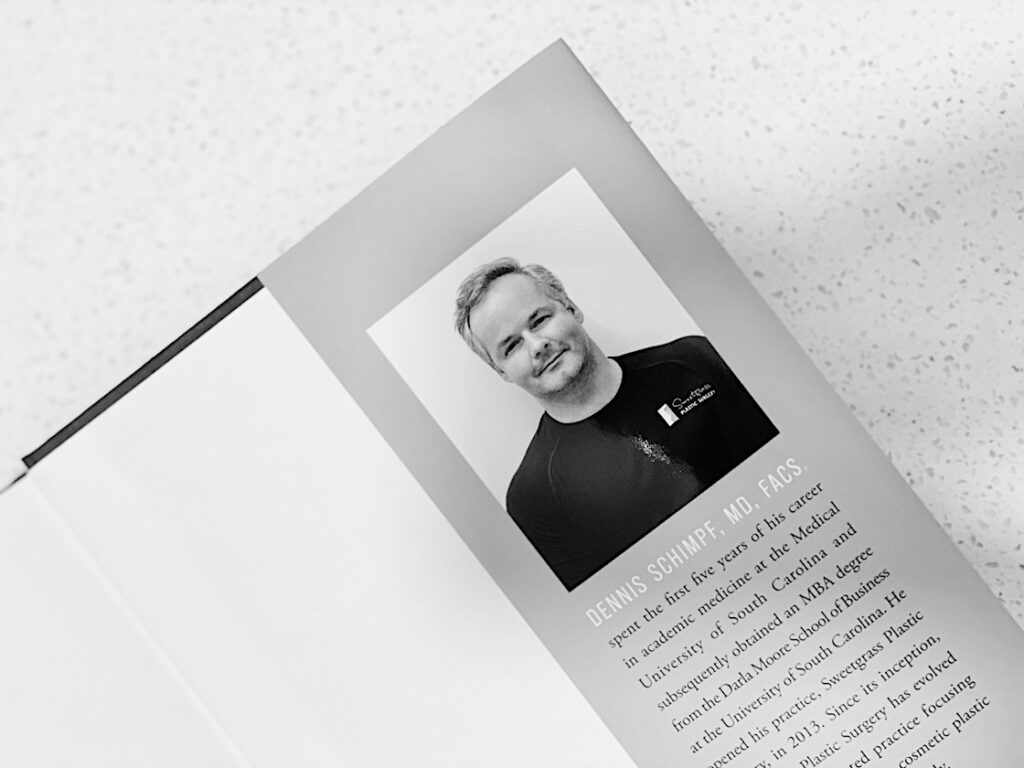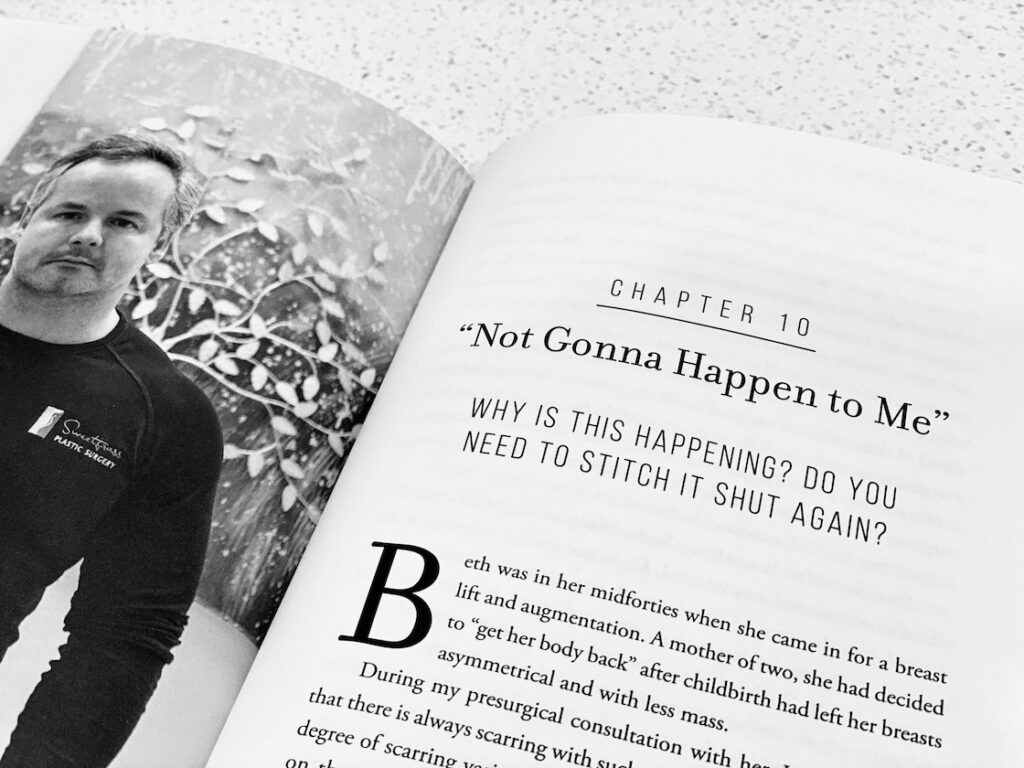A new book by board-certified plastic surgeon and Fellow of the American College of Surgeons, Dennis Schimpf, examines what it means to think, see, and feel beautiful.
Published Tuesday, May 10 by ForbesBooks in both hardcover and electronic editions, the 229-page volume is written for potential patients, whom it carefully walks through all aspects of plastic surgery.
Schimpf, the founder of South Carolina’s Sweetgrass Plastic Surgery and the Loopit health and wellness social network wrote Finding the New You to help people and patients understand “all they need to know about plastic surgery.”
“No matter the extent of the procedure, beauty starts with who you are on the inside,” the dust jacket reads in part. That message, central to the book, is reinforced and repeated throughout.
“My hope with this book is to transcend all the chaos, because for most people, plastic surgery is very much like any other surgery,” Schimpf writes in Chapter 1, “I Can’t Believe I’m Actually Here.”
Beneath an introductory deck, “Am I Being Vain,” that chapter walks patients through both the good and bad reasons to consider cosmetic plastic surgery, as well as the changes that come naturally with age, some of which cause former patients to back track or undue earlier surgical work at great expense.
“The vast majority of procedures are pretty straightforward, uneventful procedures that produce subtle but real and significant changes,” Schimpf writes.
“Plastic surgery is an art, not an exact science. There are no absolute guarantees.”
Dennis Schimpf, Finding the New You: Think, See, and Feel Beautiful

Filled with anecdotes of real former patients of his (and a few he turned down for reasons well explained), the author and surgeon guides readers through the gamut of available procedures: Which is best?, for what conditions?, for whom?, and when? And what risks and recovery are involved?
Schimpf discusses the common changes in patient’s beauty ideals, and touches on the trend to remove breast implants that comes with aging for many patients.
“Every one of them says they feel better physically, and they feel better about themselves,” after removing their implants, he writes.
“In their twenties, women may want large breasts and a Barbie-doll figure in a swimsuit. In their forties, they just want to be more active, and they don’t want the neck and back pain from large implants.”
Dennis Schimpf, Finding the New You: Think, See, and Feel Beautiful

In Chapter 5, “You’re the One Who Wanted to Do This,” the surgeon lays out what patients can expect in the postoperative recovery phase (a low-grade fever, ice for swelling, light activity, elevating the part of the body operated on, and other tips are offered) as well as what patients should prepare for ahead of time—daily meals, daily chores, pets, the kids, and a returning to work schedule.
The South Carolina board-certified plastic surgeon also advises patients to look for several things when deciding whether to have cosmetic plastic surgery and with whom:
- A good surgeon-patient relationship
- Caring office staff
- Experience and confidence (on the part of the surgeon)
- Second opinions
- Be wary of self-made claims that a surgeon is “the best.”
“Surgery alone does not change how you feel about yourself or the feelings others have when they see you,” Schimpf explains.
“It is the combination of the physical change through the surgery and the patient’s newfound self-confidence that makes their inner happiness project to those around them.
“That change is what ultimately makes a patient feel beautiful,” he says.


